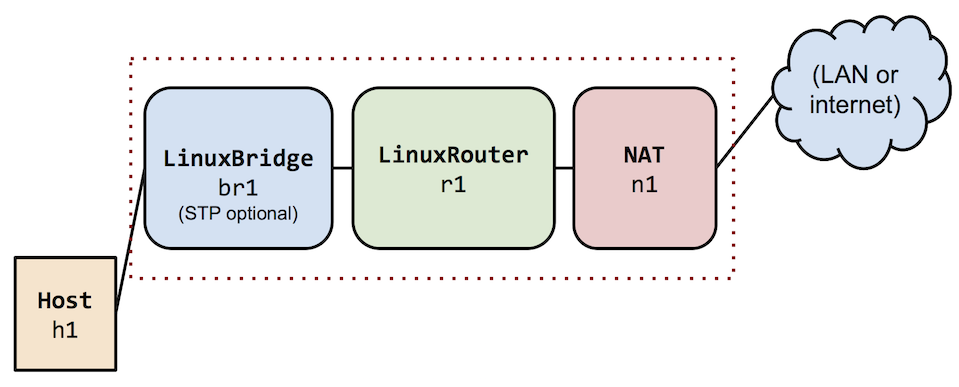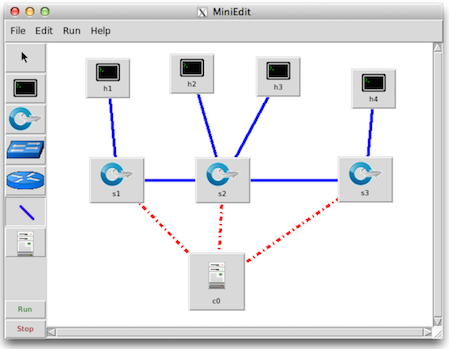We are pleased to announce Mininet 2.2.0! This release provides a number of bug fixes as well as several new features, including:
-
Improved OpenFlow 1.3 support
mn --switch ovs,protocols=OpenFlow13starts OVS in 1.3 modeinstall.sh -winstalls 1.3-compatible Wireshark dissector using Loxigeninstall.sh -yinstalls the Ryu 1.3-compatible controller
-
A new
nodelib.pynode library, and newNodetypes includingLinuxBridge,OVSBridge,LinuxRouter(seeexamples/) andNAT

-
Easier LAN/internet connectivity from Mininet hosts
-
mn --natwill semi-automatically connect a Mininet network to your LAN using NAT, solving the “why can’t I ping Google?” problem.Warning: By default this will reroute local traffic originating at your Mininet server or VM and destined for Mininet’s IP subnet (
10.0.0.0/8by default) to the Mininet network, which can break connectivity if you are using addresses in the same range in your LAN. You can change this range using the--ipbaseoption.
-
-
An improved MiniEdit GUI (
examples/miniedit.py) - thanks to Gregory Gee

-
Support for multiple
--customarguments tomnmn --custom mytopo.py,myswitch.py --topo mytopo --switch myswitch -
Experimental cluster support - consult the documentation for details - as well as
examples/cluster.pyand an experimental--clusteroption for topologies built with the defaultHostandOVSSwitchclasses:mn --cluster localhost,server1,server2,server3 --topo tree,4,4
Note that examples contain experimental features which might “graduate” into mainline Mininet in the future, but they should not be considered a stable part of the Mininet API!
How to get it
The easiest way to get started with Mininet is to download a VM image. See http://mininet.org/download for details.
The latest Mininet source code is available on github and also via code.mininet.org.
Additional information on the Mininet 2.2.0 release may be found in the release notes and on docs.mininet.org.
Mininet is an open source project, and we are grateful to our many code contributors, bug reporters, and active users who continue to help make Mininet a useful system with a friendly and helpful community!
Have fun with Mininet!
Mininet 2.2.0 Core Team:
Bob Lantz, Brian O’Connor, Cody Burkard
Open Networking Laboratory